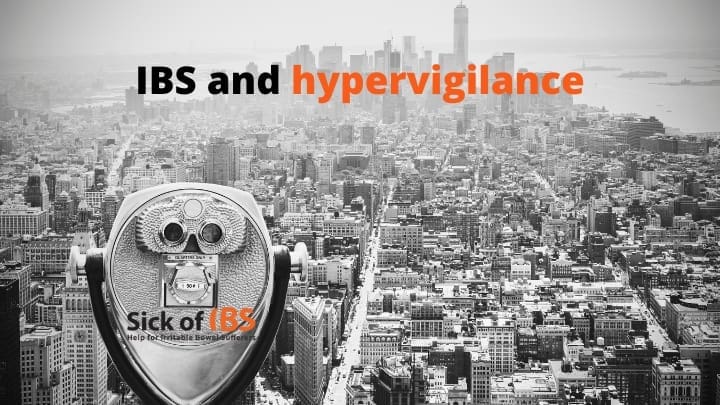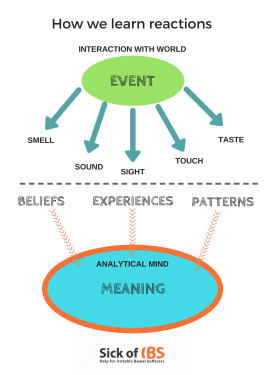
IBS can feel like a total mystery, and hypervigilance is one state that can be running in the background unnoticed.
Not everyone that has IBS is hypervigilant. However, the majority of IBS sufferers I have worked with do feel anxious, and can’t really pinpoint why.
What is hypervigilance?
Oftentimes being hypervigilant gets swept under the rug of anxiety. For the person who experiences hypervigilance, they will feel uneasy and have a heightened state of awareness in certain situations.
As Robert Taibbi puts it”Hypervigilance is the result of coping in situations where you couldn’t solve the problem, but could only cope.”
If you have come from a dysfunctional environment where there was a narcissist, rage, bullying or worse, chances are you will have learned to scan your environment for potential danger.
You may know why – or this maybe something unconscious that you don’t remember.
I have spent my life being hypervigilant – at specific times. I have always been sensitive to sound – especially at night. Growing up I had the bedroom above the kitchen, where all the heated arguments took place. But that was not the whole picture.
When we moved to a different part of France, we had a bus stop next to the house. This was very handy for the kids getting on and off school buses. But every time I heard the bus stop outside, my heart would miss a beat.
I would think to myself “That’s illogical Captain. It is just a bus! You’ll get used to it.”
But 4 years later this was still happening. Somehow I associated this sudden noise as potential danger.
What is the link between IBS and hypervigilance?
If your senses are scanning for danger in certain situations, this sets of flight, flight or freeze responses. And bracing yourself.

Your unique system will select what is the most appropriate/effective strategy for you.
In some people the flight response will trigger diarrhoea. In others, the freeze response will have them hold everything in, creating constipation.
The freeze response can also cause muscle contraction, including in the abdomen (abdominal cramps).
Other physical conditions linked to the feeling of insecurity are lymphatic problems and swelling in different parts of the body (often arms legs).
Recognizing hypervigilance

Bear in mind that you may have had this reaction for many years, so it may take some observation to find it.
We all have 5 senses: sight, hearing, taste, touch, and smell.
As you read each of them, does one stand out?
Do you know you are particularly sensitive in one area, or specific situations?
As you go through your day, see if you can notice if something suddenly makes you feel uneasy.
Hypervigilance can be released
The good news is that hypervigilance can be released. By getting the help from someone who is experienced in releasing it.
Or by deciding to feel it in your own body.
